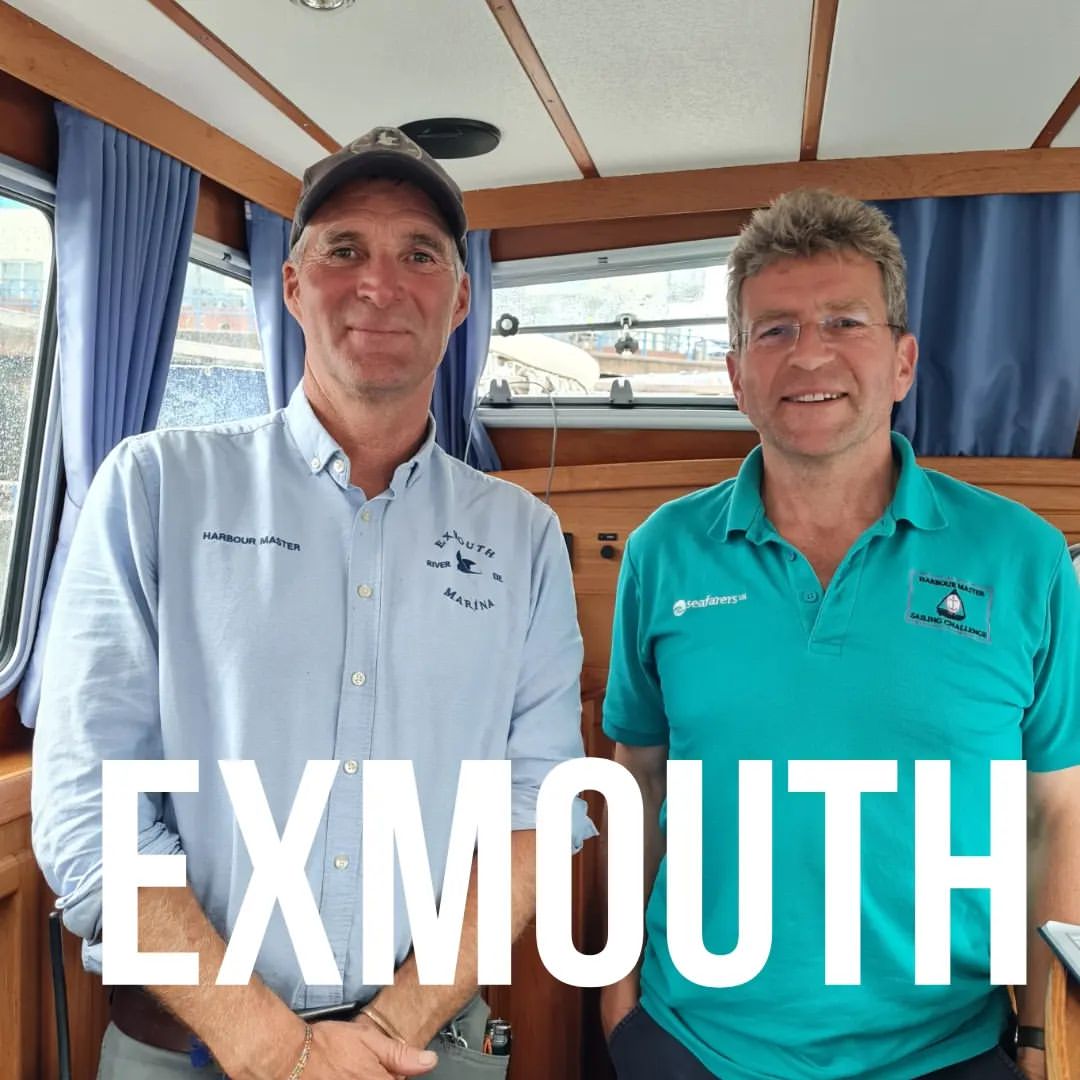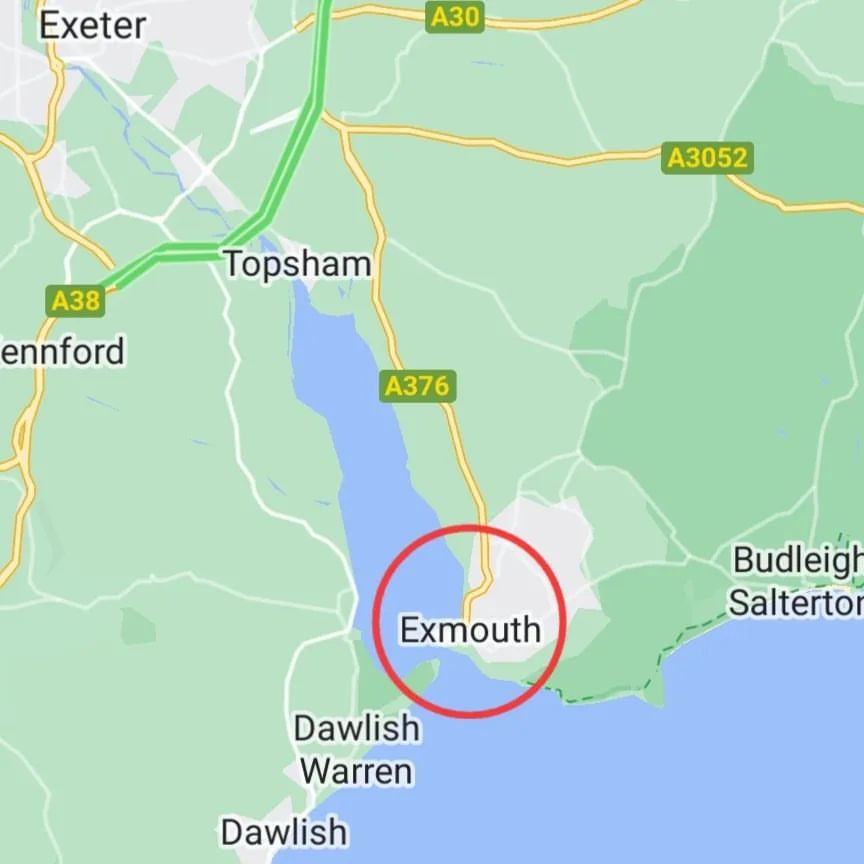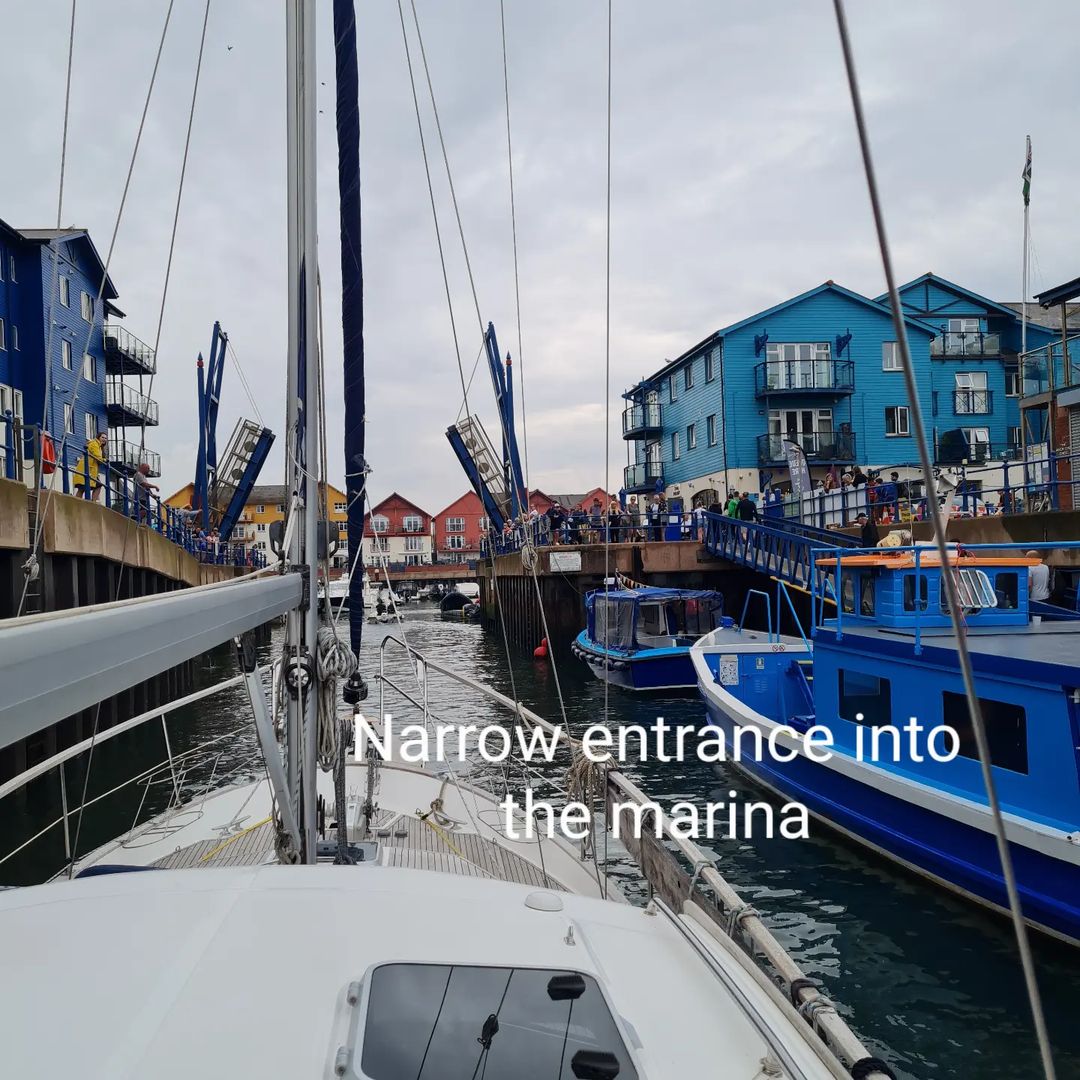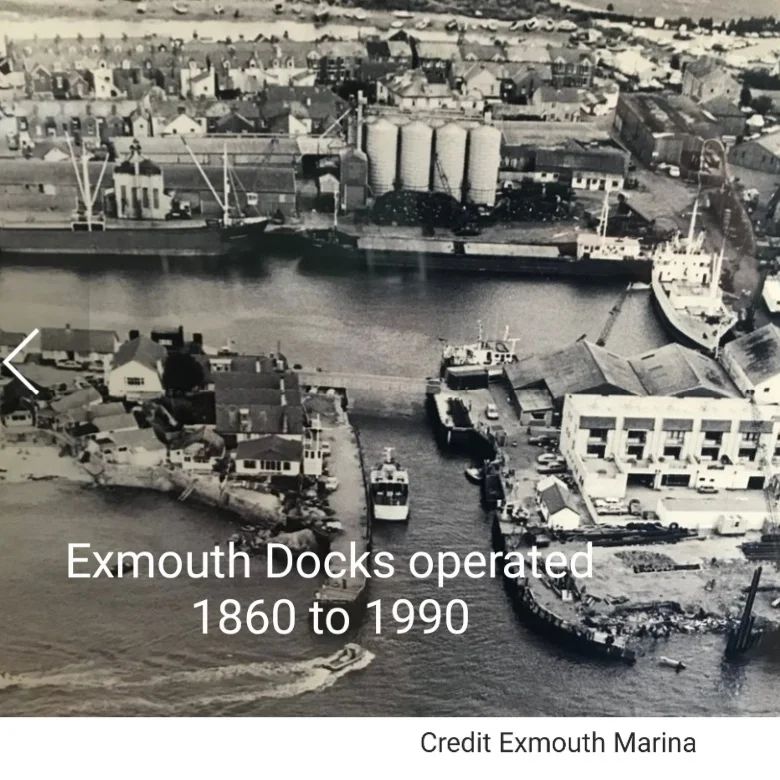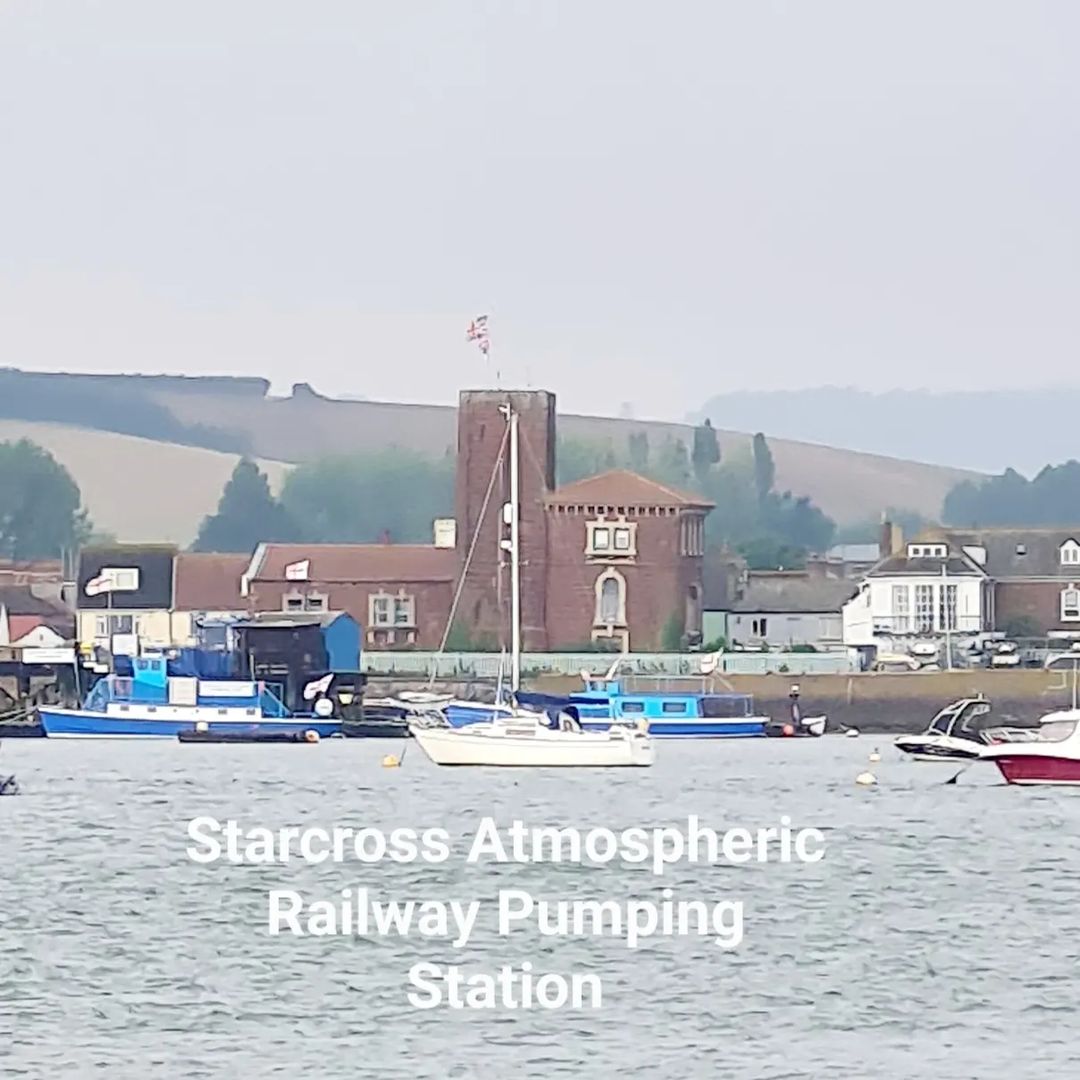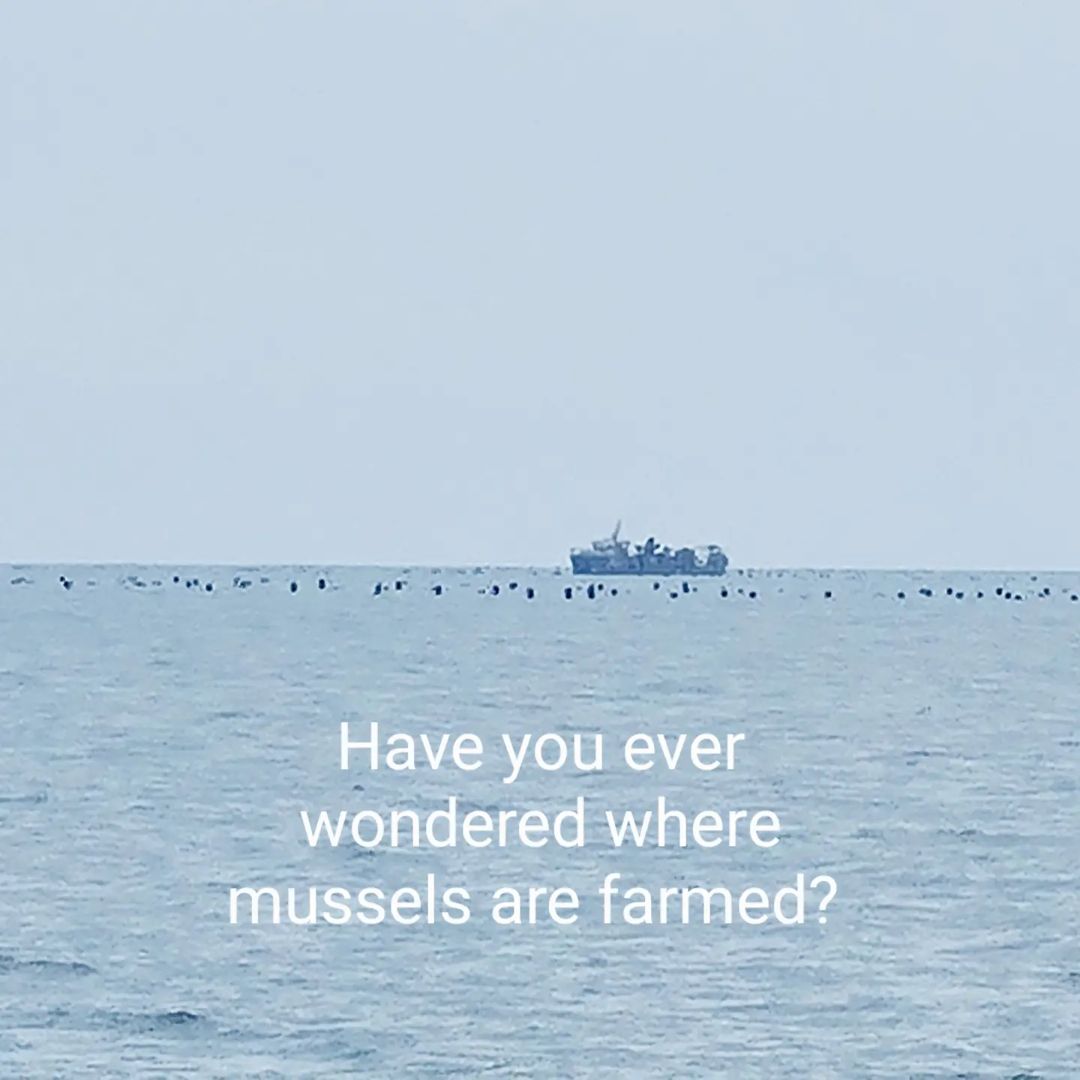Exmouth
August 16, 2022
16 Aug 22. HM 206. Exmouth.
A famous estuary under threat from the sea.
If you have ever taken the train from Exeter to Plymouth you will have watched boats sailing in the Exe estuary. I wonder if you, like me, sit there wishing you were afloat!
On the north shore of the estuary entrance is Exmouth harbour. Once a thriving Victorian dock, it has now been developed into a well protected marina, albeit with an excitingly narrow entrance! In charge is Exmouth Harbour Master Steve Hockings-Thompson.
Steve is a typical Lifeboat Coxswain, very calm and friendly. He kindly spent two hours showing us around the spotlessly clean Exmouth lifeboat. Part of his surname - Hockings - is from his wife's family. Photos of her great grandfather adorn the station walls. A crew of 30 volunteers handle 180 "services" a year in their Shannon lifeboat, which amazingly can carry 72 survivors.
Steve started at Falmouth boat building college aged 16 and became a professional sailmaker. When he is not sail making or harbour mastering he instructs the Royal Marines in boat handling.
The protective sand dune bank at the estuary entrance, known as Dawlish Warren, is slowly being eroded by the sea. In 2017 The Environment Agency buried an innovative "GeoTube" under the sand (photo 7) to strengthen the dunes, but it is likely nature will eventually win and cause a breach. If that happens, the shape of Exmouth seafront and the famous train line leading to Dawlish will be changed forever.
This "Riviera" train line was the site of a rare failed engineering experiment by Brunel, called Atmospheric Propulsion. Under the tracks, a tube containing a vacuum, was connected to the train which in theory was drawn forward at a speed greater than a traditional engine. It did not work, but one of the stationary engine houses still survives at Starcross.
Out to sea we passed a vast "mussel farm", where the shellfish are cultivated on ropes (photo 10).
Based in the harbour, The Exmouth Mussel Company have developed unique equipment to farm the fast flowing river Exe. By using a gentle "elevaor", the shellfish are carefully teased from their muddy beds. Minimal disturbance and constant re-seeding ( a mussel takes 3 years to grow) allows the high density of fish, crabs and sponges that build up on these “underwater rainforests” to be maintained. Having fed all year on the plankton rich waters of the River Exe these organic mussels are at their finest from about mid-June.
Thank you Steve for a particularly memorable visit.
A famous estuary under threat from the sea.
If you have ever taken the train from Exeter to Plymouth you will have watched boats sailing in the Exe estuary. I wonder if you, like me, sit there wishing you were afloat!
On the north shore of the estuary entrance is Exmouth harbour. Once a thriving Victorian dock, it has now been developed into a well protected marina, albeit with an excitingly narrow entrance! In charge is Exmouth Harbour Master Steve Hockings-Thompson.
Steve is a typical Lifeboat Coxswain, very calm and friendly. He kindly spent two hours showing us around the spotlessly clean Exmouth lifeboat. Part of his surname - Hockings - is from his wife's family. Photos of her great grandfather adorn the station walls. A crew of 30 volunteers handle 180 "services" a year in their Shannon lifeboat, which amazingly can carry 72 survivors.
Steve started at Falmouth boat building college aged 16 and became a professional sailmaker. When he is not sail making or harbour mastering he instructs the Royal Marines in boat handling.
The protective sand dune bank at the estuary entrance, known as Dawlish Warren, is slowly being eroded by the sea. In 2017 The Environment Agency buried an innovative "GeoTube" under the sand (photo 7) to strengthen the dunes, but it is likely nature will eventually win and cause a breach. If that happens, the shape of Exmouth seafront and the famous train line leading to Dawlish will be changed forever.
This "Riviera" train line was the site of a rare failed engineering experiment by Brunel, called Atmospheric Propulsion. Under the tracks, a tube containing a vacuum, was connected to the train which in theory was drawn forward at a speed greater than a traditional engine. It did not work, but one of the stationary engine houses still survives at Starcross.
Out to sea we passed a vast "mussel farm", where the shellfish are cultivated on ropes (photo 10).
Based in the harbour, The Exmouth Mussel Company have developed unique equipment to farm the fast flowing river Exe. By using a gentle "elevaor", the shellfish are carefully teased from their muddy beds. Minimal disturbance and constant re-seeding ( a mussel takes 3 years to grow) allows the high density of fish, crabs and sponges that build up on these “underwater rainforests” to be maintained. Having fed all year on the plankton rich waters of the River Exe these organic mussels are at their finest from about mid-June.
Thank you Steve for a particularly memorable visit.
